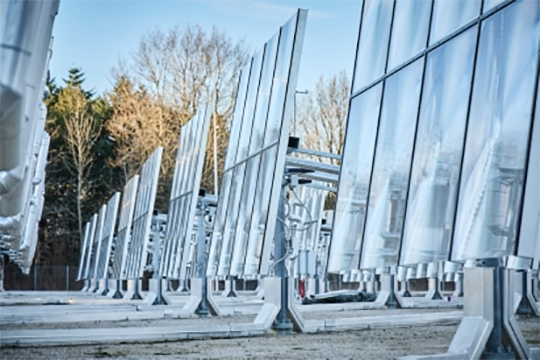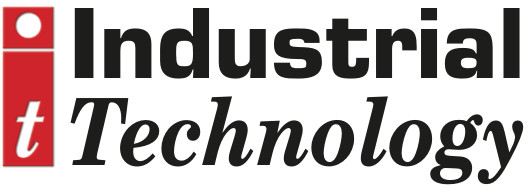
Posted to News on 14th Sep 2023, 10:15
Seamless data pathways and optimised solar tracking

Rockwell Automation reports that its seamlessly integrated hardware and software control solutions are proving pivotal to the success of a new form of carbon-free heat supply and storage.
The solar-capture technology, developed by Danish Company Heliac, uses steerable arrays of Fresnel lenses to concentrate incoming sunlight onto receivers placed behind each panel. The heat generated at each receiver raises the temperature of water flowing through the system by about 1 to 2°C, and once the desired temperature is reached, the heat is delivered to where the end-user needs it.
A typical system comprises 144 panels, with each panel assembly using an Allen-Bradley Micro800-PLC controlled dual-axis tracking system to dynamically follow the sun to help ensure optimised solar capture. All panels are interconnected via several kilometres of water pipes, while the Micro800 PLCs all feed into a single Allen-Bradley CompactLogix programmable automation controller (PAC), which in turn supplies the operational data for the FactoryTalk View display.
“Innovative sustainability solutions come in all shapes and sizes, and not all of them require complex control solutions,” explains Åsa Arvidsson, regional vice-president, sales, North EMEA, at Rockwell Automation. “In Heliac’s application the combination of our low- and mid-range controllers along with FactoryTalk View has delivered an ideal best-fit architecture for both control and operational data collection. We look forward to delivering further support as this new idea gains traction.”
Christian Del Mastro, commercial manager at Heliac, says: “As well as carbon-free heat generation, our approach to solar energy capture goes one step further due to its use of less-polluting water, as opposed to more traditional oil-based systems.
“Our lead engineer’s previous experience with Rockwell Automation hardware has been bolstered by support from the company’s Danish distributor, Wexoe, resulting in a control solution that does exactly what we need, backed by the peace of mind that wider global support will be available as we look to grow our geographical user base.”








